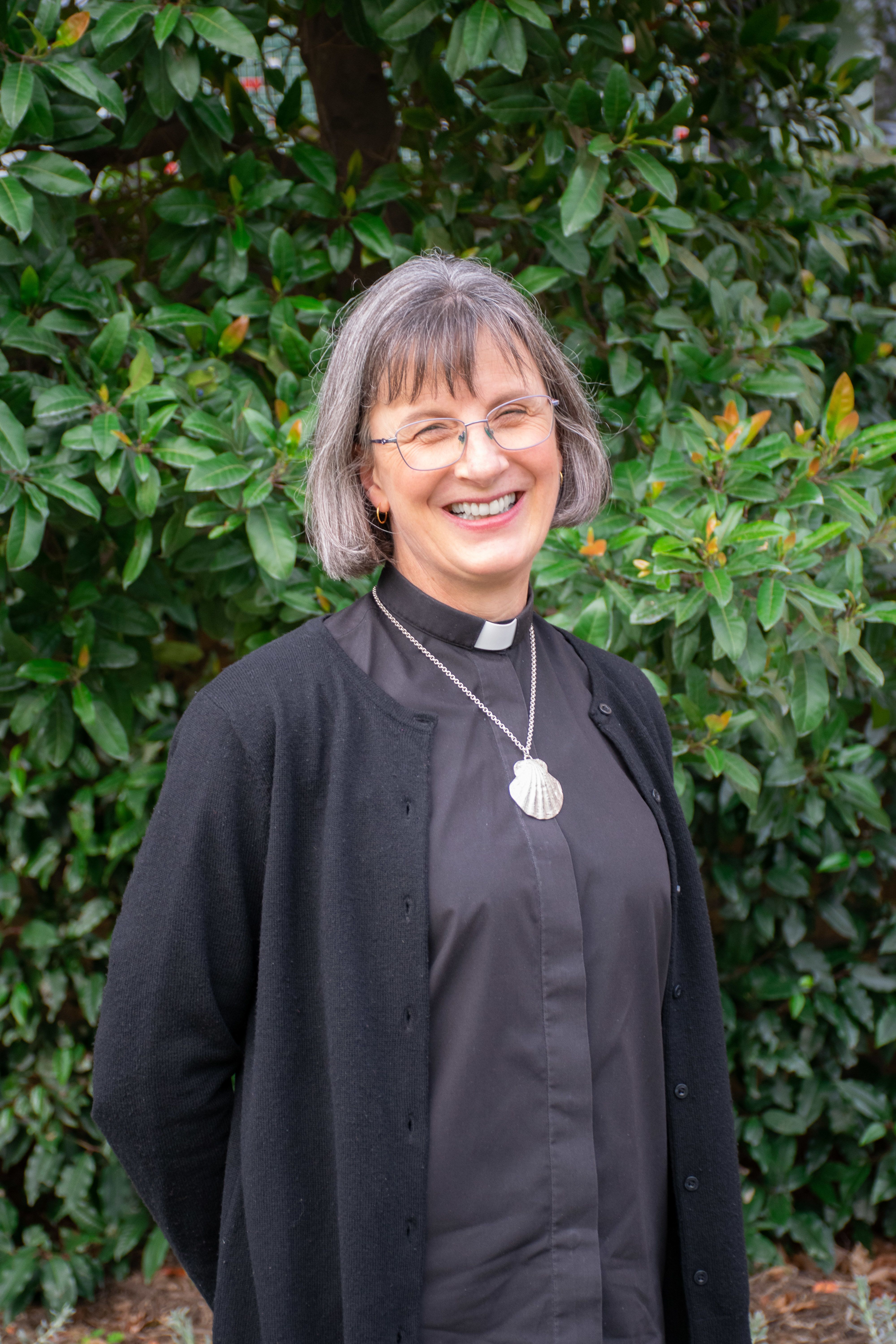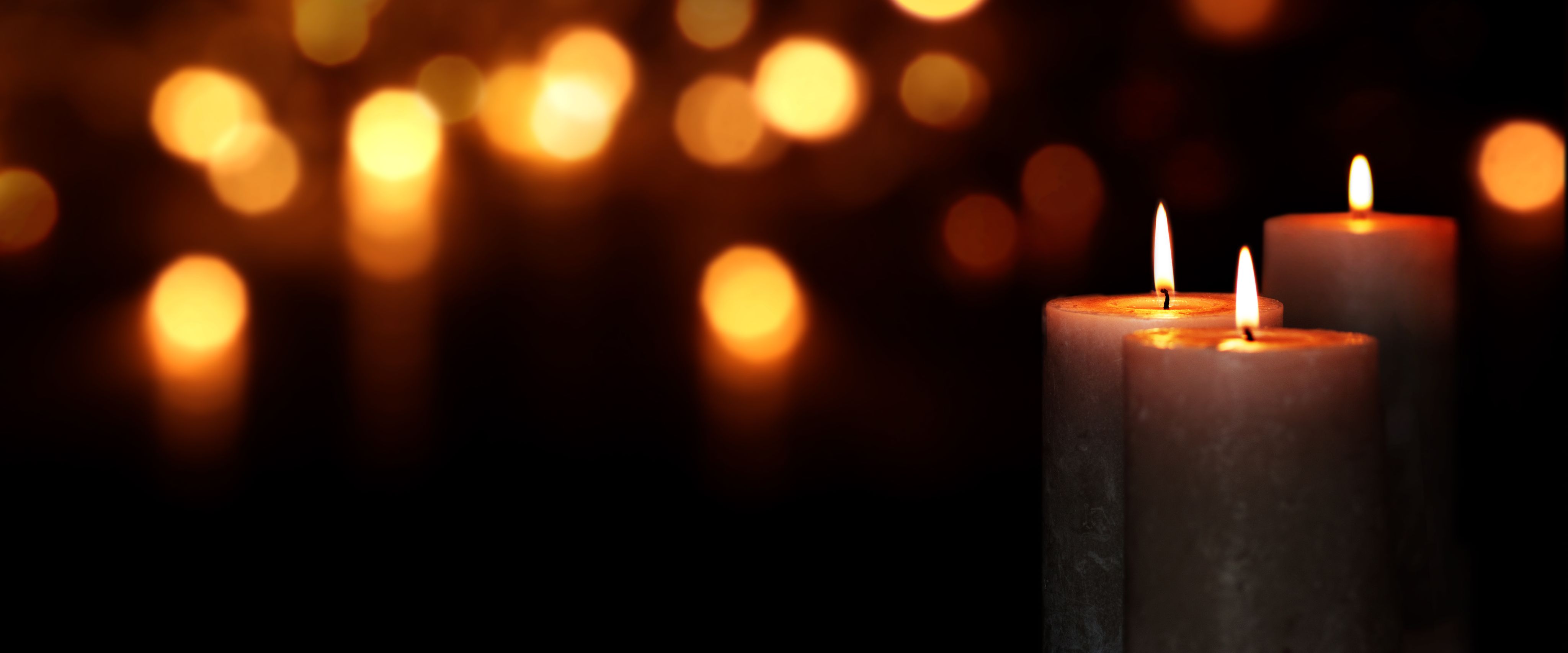Where is God in all this?
The Revd Colleen Clayton (TCTS 2008) became a priest-in-charge at an odd and challenging time – right at the outset of a deadly global pandemic.


One of the cruellest consequences of the outbreak of COVID-19 was that people were often isolated from their loved ones throughout illness or at their time of death. At the height of the pandemic in Melbourne, only 10 mourners were allowed to attend funerals, while travel between towns, states and within cities – even to see the ill or dying – was not always permitted.
The Reverend Colleen Clayton, priest-in-charge at St Matthew’s Anglican Parish in the southern Melbourne suburb of Cheltenham, oversaw five funerals in her first three months in the role and remembers how harrowing it was for families to decide who to invite. On top of that, funeral companies were new to live-streaming – a workaround that was introduced (and has since continued) to reach a wider congregation – so there were some awkward teething issues as the technology was refined.
Funerals weren’t the only challenge facing Colleen. In the early days of her role, which she took up in May 2020, she often had to grapple with technology herself and find novel ways to keep members of her community connected, despite having met very few in person, and with lockdowns in place that prevented her from doing so.
Colleen grew up Anglican, regularly attending church, and, as a teenager, had dreams of one day becoming ordained. Her dreams were just that though because, at the time, women weren’t permitted to become members of the clergy.
Instead, Colleen began her working life as an occupational therapist, working mostly with young men who had suffered head injuries in road accidents. She started to search for meaning in these traumatic and unexpected events and, through considering the role faith played in supporting these young people and their families, her calling to ministry grew stronger. This prompted her to enrol in a Master of Divinity at the Trinity College Theological School, eventually becoming ordained.
In pursuing her theological vocation, Colleen worked as a lay minister and school chaplain, and, following ordination, became curate at St John’s Camberwell. She recalls the steep learning curve that ensued after being installed as priest-in-charge in Cheltenham, not least because suddenly there was no supervisor to turn to for advice.
There was also COVID-19.
Colleen was fortunate that the locum who had been filling her position had requested that parishioners write a letter and send a photo to their new priest. ‘That was really helpful,’ she says. ‘It gave me a starting point for making phone calls with people.’
Still, it didn’t feel enough. ‘I really felt the need to get some kind of electronic, online communication with people happening, partly so I could meet them, but partly so that they could stay in touch with each other.’
Colleen started by recording services, but this proved difficult without the right technology. She also didn’t like that church then became something that people watched, rather than participated in. Like many organisations, she quickly switched to Zoom and her husband became her tech support, while an assistant drove around to families’ houses to drop off care packages and activities for the Sunday service. Zoom services meant parishioners could still perform readings and lead prayers, with the proceedings ending with a virtual cup of tea.
‘I made the decision to Zoom from the church, so people were still seeing the building,’ says Colleen. ‘We had the candles lit and, when it was possible for flower arrangers to come in, we’d still have flowers in the church. Those little things gave people a sense that this place that was precious to them still existed and was still being used, and it signalled that their worship was still connected with it.’
Colleen could see the value the church brought by the effort people made to attend these out-of-the-ordinary services.
‘It was remarkable,’ she says. ‘One lady, who’s since passed away, was in her nineties with macular degeneration, but she still made an effort to get herself online so that she could hear her friends’ voices.’ Many attendees lived alone, so the weekly Zoom service and online morning prayers were their main social interactions for the week.
Just as Colleen’s time as an occupational therapist prompted her to think about where God was in all the trauma, COVID prompted questions of where God was in the midst of an unforeseen event like the pandemic, and in the event of losing loved ones you couldn’t physically be with. After some thought, Colleen points to the heightened importance of community and marking moments in people’s lives as a small virtue to have come from the pandemic.
‘I noticed that it was really important to acknowledge people’s birthdays and significant times in the community’s life, and to remember people who died with ceremonies, like the interring of ashes,’ she says. ‘It really did show me the human need for connection with each other, the value of ritual, and the value of tradition and special places.’
>>> READ NEXT: EVENTS GALLERY
